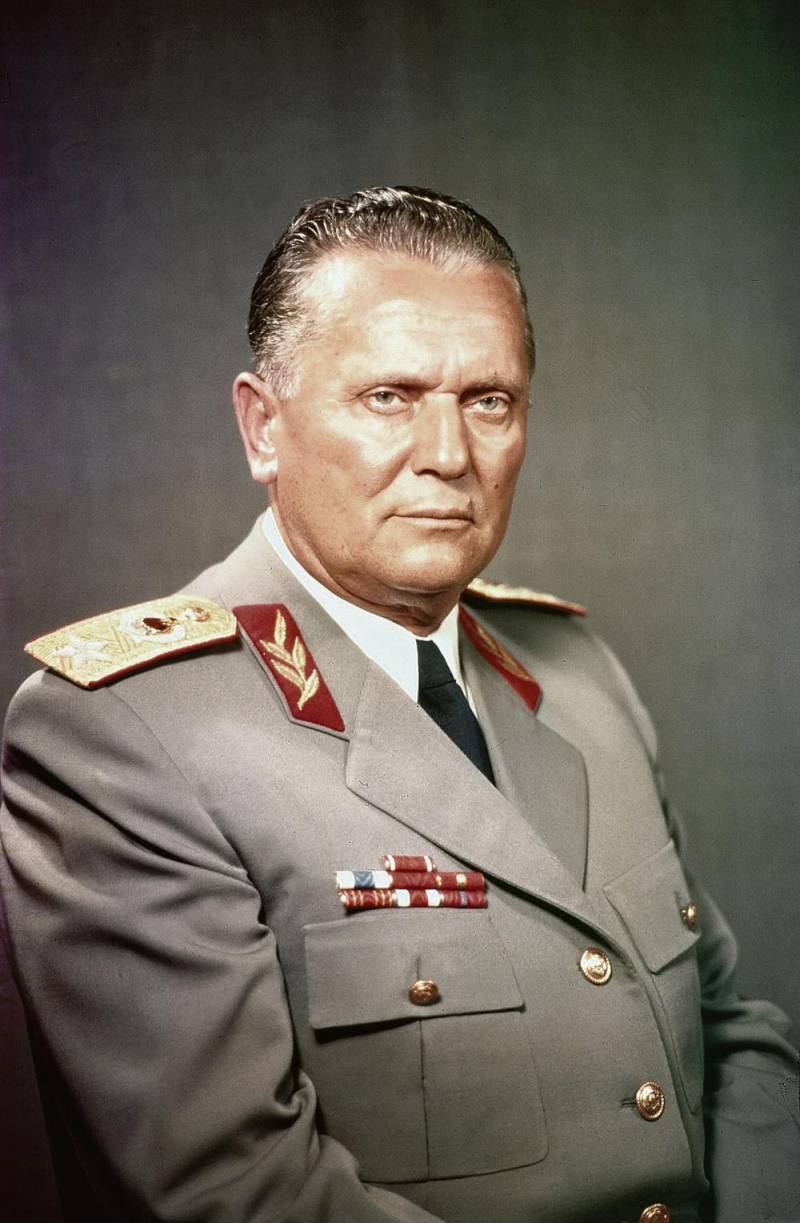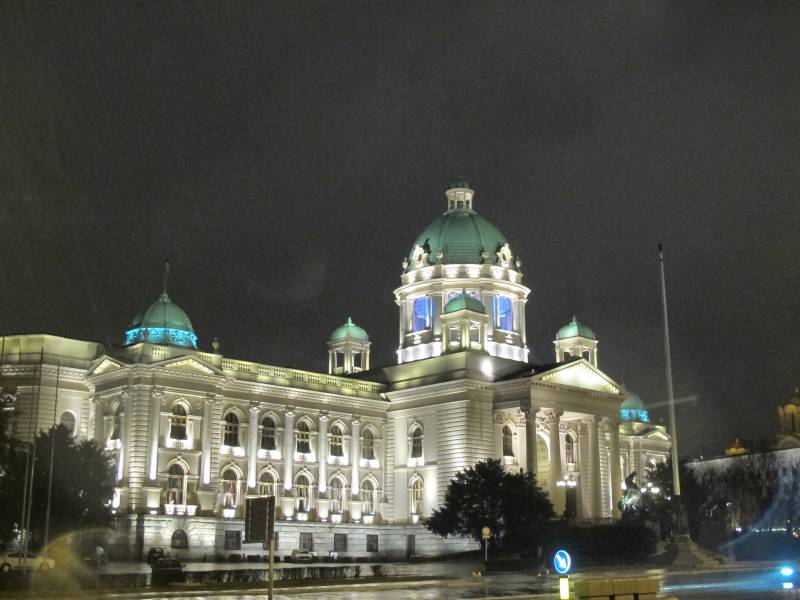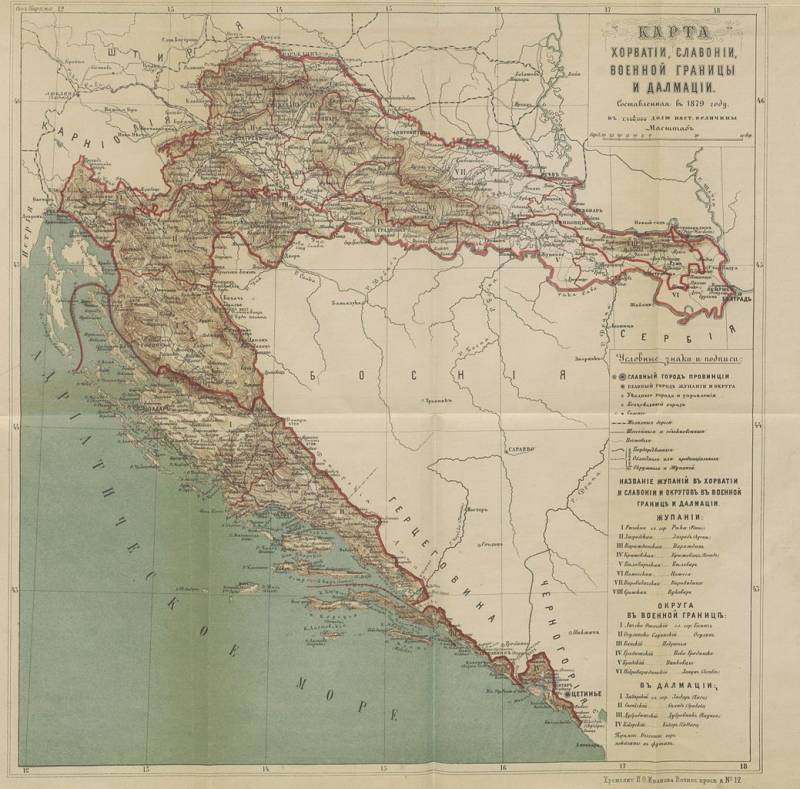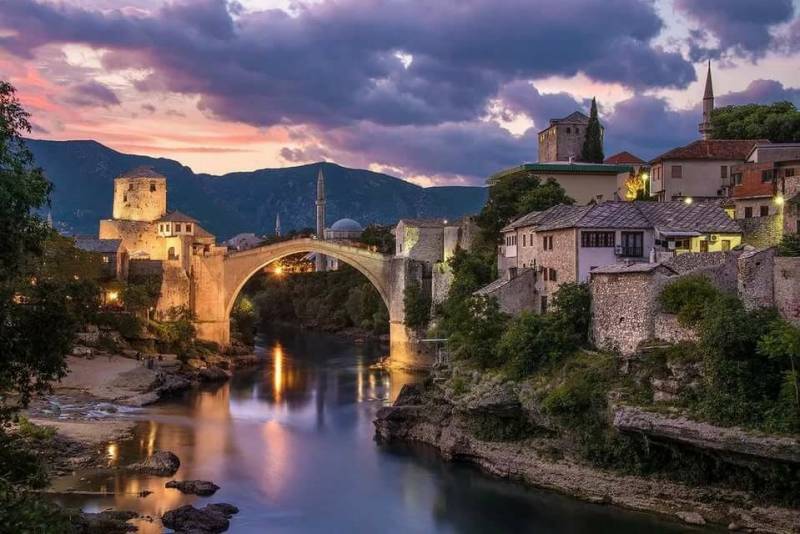Yugoslavia.net. Marshal Tito's controversial legacy
Hands off Jadran
On June 11, 1980, a month after the death of Marshal Josip Broz Tito, the first bell sounded about the preparation of Yugoslavia for the collapse. The leadership of the Union of Communists of Croatia that day invited the communist Union of the whole of Yugoslavia to discuss the expansion of the political and economic rights of all the republics of a still single country.
It was about the establishment of individual republican consulates and trade missions abroad, as well as about the opportunity to discuss the issue of granting Kosovo the status of a republic. The latter was a real shock for Belgrade. And these initiatives of Zagreb were not purely Croatian; they were actually “entrusted” to Croatia by the leaders of Bosnia and Herzegovina and the semi-criminal Kosovo-Albanian groups.
An appropriate meeting was soon convened in Belgrade, but the SFRY authorities participating in it were taking time to try to “wind up” those issues in all kinds of discussions and clarifications of legal issues. Nothing concrete was decided at the meeting, but the incentive to expand national separatism unexpectedly proved to be very powerful. (see details “After Tito there was a flood. The heavy legacy of the master of Yugoslavia ”).
However, this meeting practically did not discuss, for example, the long-standing claims of the authorities of Bosnia and Herzegovina on a part of the Adriatic (Jadran) coast. Throughout the 70s and early 80s, Sarajevo regularly but unsuccessfully demanded that Belgrade change the disproportionately large territory of the Adriatic coast of Croatia in favor of Bosnia and Herzegovina, which actually blocked the neighboring republic from the sea.
Historically, from the time of the Habsburg rule, Bosnia and Herzegovina had access to the Adriatic for only 20 km, which, however, “rested” on the Croatian islands and peninsulas. In response to the demands of the Bosnian leadership, the authorities in Zagreb, the capital of Croatia, directly threatened to leave the SFRY, which was clearly feared in Belgrade. Under the threat of Croatian separatism, the territorial claims of Bosnia and Herzegovina against Zagreb were regularly rejected.
The legacy of the collapsed Habsburg empire turned out to be such that over 80% of the entire Adriatic coast of royal and post-war Yugoslavia was part of Croatia. It was not without difficulty that they were slightly cut back in favor of Slovenia - north of the Istrian peninsula, as well as Montenegro, which was invariably loyal to Serbia and Belgrade as the center of a unified Yugoslavia. Serbia and Montenegro tried to take away from the Croats and Dubrovnik (ancient Ragusa), populated mainly by no means Croats, but did not succeed.
The Croatian Adriatic coast has invariably attracted the West, and not only in terms of tourism. It later turned out to be very “convenient” for direct military intervention in Yugoslavia. In addition, the “coastal” factor allowed Zagreb in 1990-1991. block foreign trade transportation of the decaying SFRY, for over 80% of the country's marine and about a third of the river port facilities are located again in Croatia.
Zagreb - not Belgrade
Serbia did not want to recognize Turkish domination, traditionally gravitated towards Russia, and in the summer of 1914 fearlessly got into a fight with the huge Austro-Hungarian empire. Which then included Croatia and even Bosnia and Herzegovina, annexed by Vienna just a few years before World War II. For official Belgrade, monarchist or socialist, centripetal tendencies have always been characteristic.
But Zagreb traditionally looked, and now it looks mainly at the West, and it is very aggressively defending its special positions not only in the region, but even in united Europe. So it’s hardly worth wondering that it was Croatia, for a variety of reasons, that turned out to be, literally, the main “shooter” of the collapse of Yugoslavia (for more details, see “When Tito left. Inheritance and heirs ").
The most defiantly Croatian separatism was supported by Germany and the Vatican. The latter is understandable, given that in four-million Croatia, 86% of believers are Catholics, moreover, they are as Orthodox as, for example, Poles. Characteristic in this regard is the point of view of Peter Frolov, adviser-envoy of the Russian Federation in Bosnia and Herzegovina in 2015-18:
P. Frolov drew particular attention to the fact that in parallel with the support of Catholics, “believers” of a completely different sense also managed to get their own:
Agree, it is indicative of how the “remote” Muslims of Bosnia stimulated the bow of Tehran and Riyadh, which is absolutely unthinkable, in the opinion of straightforward Western politicians. On the whole, a motley, but capable anti-Yugoslav coalition can even be envied in a sense ...
It is interesting how the authoritative Serbian politician Dobrivoe Vidic assessed Croatian claims for independence, whom I. B. Tito considered either a rival or a potential successor. D. Vidich was twice the ambassador of Yugoslavia to the USSR, then he headed the Assembly - the parliament of the unified SFRY, and repeatedly warned the aging "master of Yugoslavia" about the danger of Croatian separatism. After the death of Marshal Tito, he wrote:
This, in Vidic’s view, was due, among other things, to the fact that Josip Broz Tito himself was Croatian by nationality, although he built a single country, relying primarily on Serbia and the Serbs in all Yugoslav republics. The “internationalists” who came to power either did not dare to change the specific national alignment or simply did not want to. It is possible that Vidic believed that this happened "due to the sharply intensified Croatian separatism, which became increasingly active soon after Tito and the Croatian authorities."
Last flight of Biedich
In conclusion, an important but little-known detail: on January 18, 1977, at the Bateinitsa airfield in Belgrade, Marshal Josip Broz Tito, who began his last visit to Libya, was seen off by Jemal Biedich and his wife. The Bosnian communist Biedich was at that time not only the head of the single Yugoslav authority - the Union Veche, but also the chairman of the Assembly, as well as the informal leader of the Union of Communists of Yugoslavia. Tito safely departed to visit Colonel Gaddafi, and the Biedich couple went home, to Sarajevo, on a Learjet 25.
This flight ended in disaster: a small business class airliner suddenly crashed into Mount Inaz in northeastern Bosnia. Died Jemal Biedich and his wife Razia, work colleagues Ziyo Alikalfich and Smayo Hrla, pilots Stevan Lek and Murat Hanich. According to the official version, the weather became the cause of the disaster, but rumors and versions about the “organized” disaster immediately spread.
The speculation was greatly fueled by the fact that J. Biedich, a Bosnian from Herzegovina, did not support either local, Croatian, or Albanian-Kosovo separatists. Moreover, in the leadership of the SFRY, he oversaw the relations of the federal republic with Albania - not only Stalinist, but also openly anti-Titan.
Biedich managed almost impossible - not to bring the contradictions to aggravation. It was his political activity that contributed in the mid-70s to the development of transport and general economic relations between the two countries. According to the same versions, the underground Islamic-extremist group of the notorious Aliya Izetbegovich could well have been involved in the disaster.
Since the mid-70s, it has acted on Bosnian lands and far beyond their borders, for example, in Kosovo. Its leader, a Bosniak and an ultra-Islamist abruptly al-Qaeda leaders (banned in Russia), became the head of Bosnia and Herzegovina only later - from 1991 to 1996. But about this figure, as well as about the "traitor" Franjo Tudjman - in our next essay.





Information